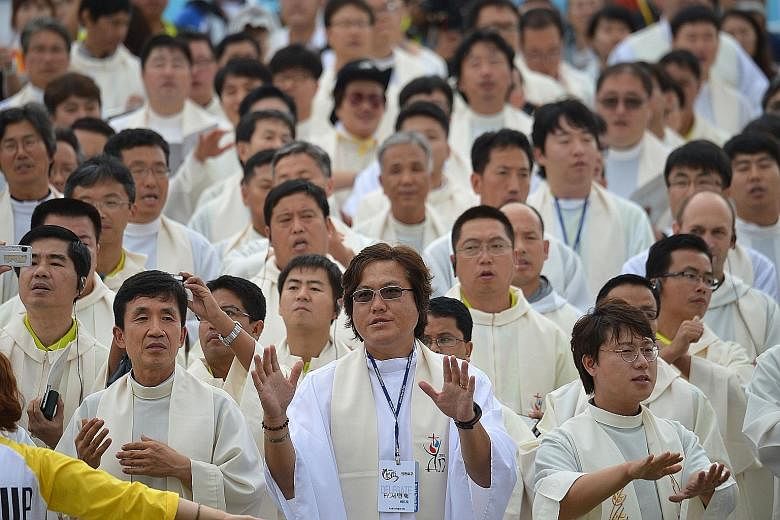Religious workers in South Korea will have to pay income tax from 2018 after the passage of a landmark Bill that marked the end of an issue that has been debated, but never resolved, over the past 50 years.
The controversial tax Bill, which is supported by Catholic churches and Buddhist temples, but vehemently opposed by major Protestant groups, was passed in a 195-20 vote in the National Assembly late on Wednesday, two days after it was approved by the assembly's Strategy and Finance Committee.
Some religious leaders here insist that their work is spiritual and should not be taxable, but the government has been pushing for the change as part of wider reforms which include raising the tax demands on business conglomerates and high-income earners.
Even as the Bill was passed, there were voices of objection. The Commission of Churches in Korea said in a statement that taxing clergymen "equates religious activities with commercial activities". National Assembly Vice-Speaker Lee Seok Hyun said: "How can we face God if we collect taxes from religious men?"
Of the 364,000 priests, monks and other religious workers in the country, only those working for the Catholic and Anglican churches have been voluntarily paying income tax. The Catholic Church started the practice in 1994.
South Korea is home to five of the world's largest mega-churches, with the Yoido Full Gospel Church topping the list with 830,000 members. Tax exemption was cited as a key factor in the rapid growth of these churches. There are 17 in Seoul alone.
Some of these churches operate like businesses, investing in property and media companies, and criticism has mounted as their wealth grew along with their congregations.
In one of the biggest scandals to rock the Christian community, Yoido founder David Cho was convicted of embezzling 13 billion won (S$15.8 million) in church funds to buy stocks and evading 3.5 billion won in taxes in the process. He received a suspended three-year prison term.
Church funds allocated for religious use are exempt from tax, but investments in assets or stocks are taxable under current government regulations .
Left-wing newspaper Hankyoreh recently reported that some pastors were getting "fabulously rich" off untaxed "invisible benefits".
It said a head pastor in a Seoul church who retired in 2013 received a package including a 700 million won flat, a 50 million won car, severance pay of 300 million won and lifetime monthly pay at 80 per cent of his last honorarium.
There has been widespread media support for the new legislation on taxing religious workers, with The Korea Times saying it was time for religious leaders to "take their responsibility willingly and not hide behind the law".
The National Council of Churches in Korea also voiced support but called for efforts to ensure fairness so that the new measure does not "corrode the dignity of clergymen".
Under the new law, religious workers can either pay tax monthly through their organisations or file on their own annually. Religious organisations, for their part, will be required to submit income data for auditing. Observers note that there is potential for tax evasion by under-declaring income.

